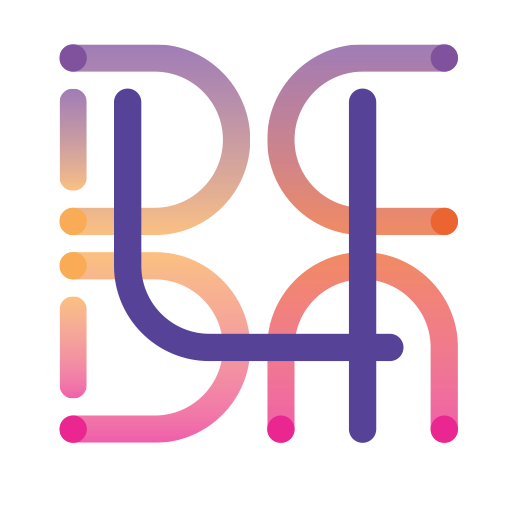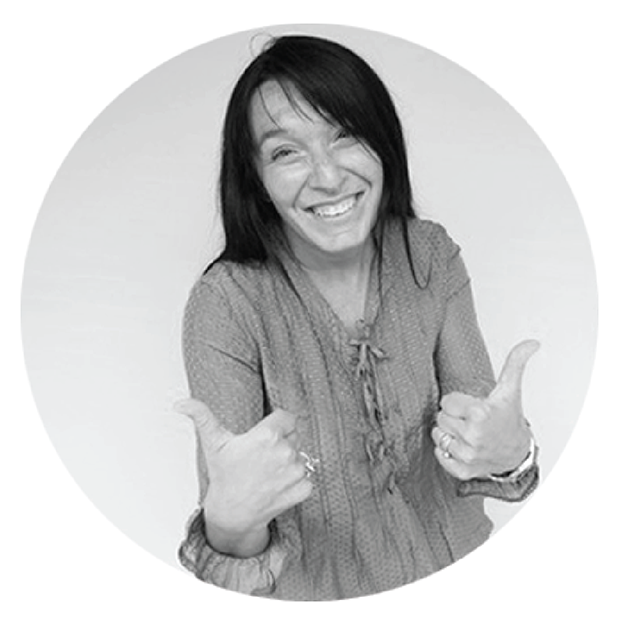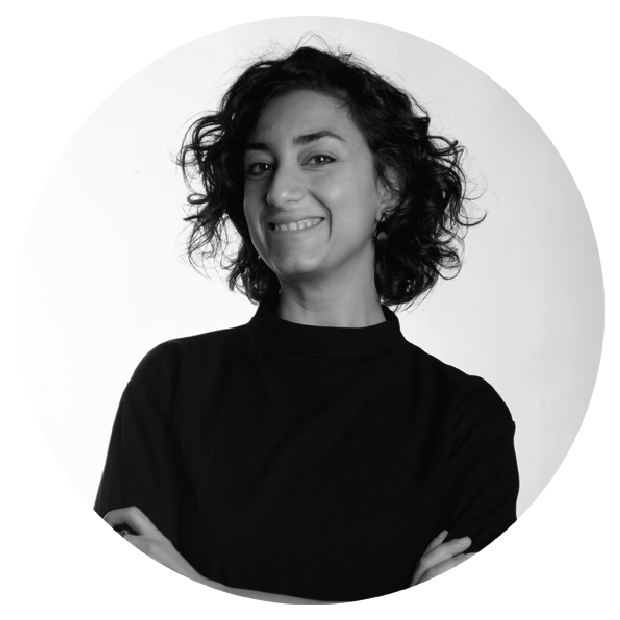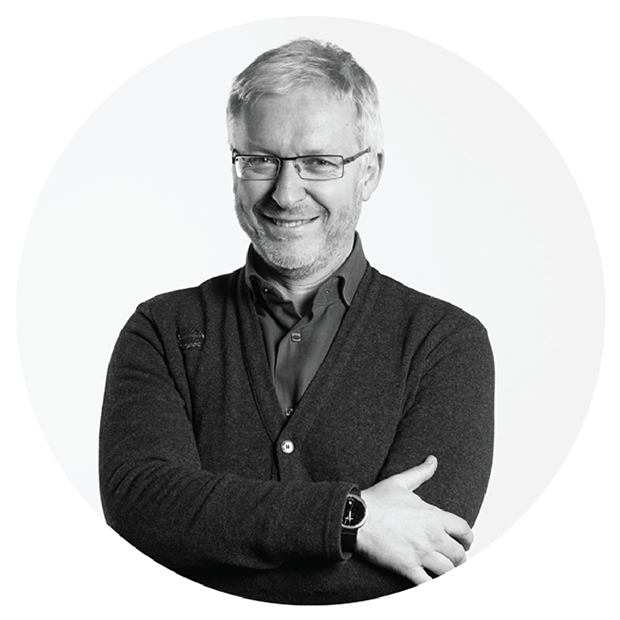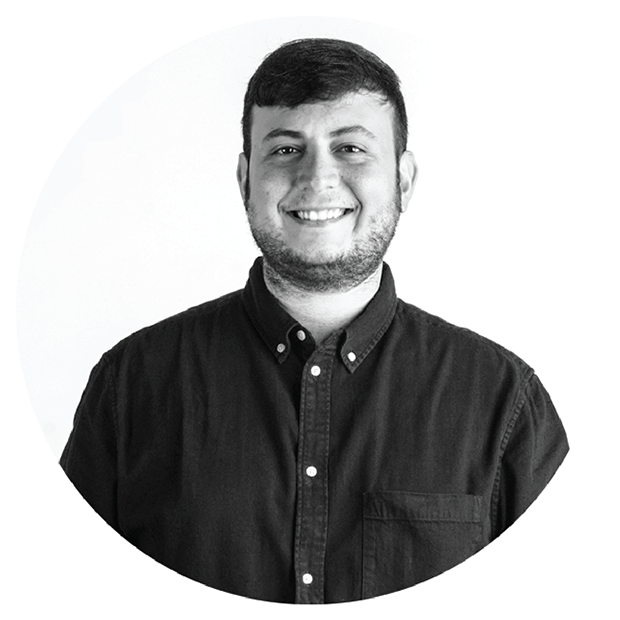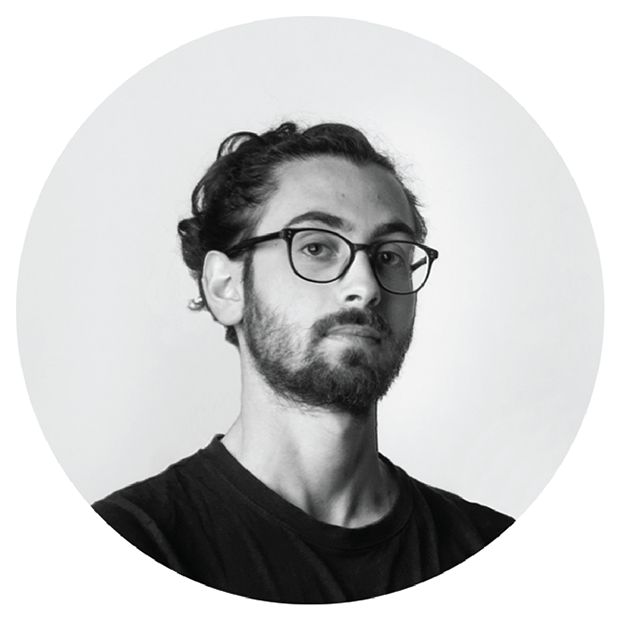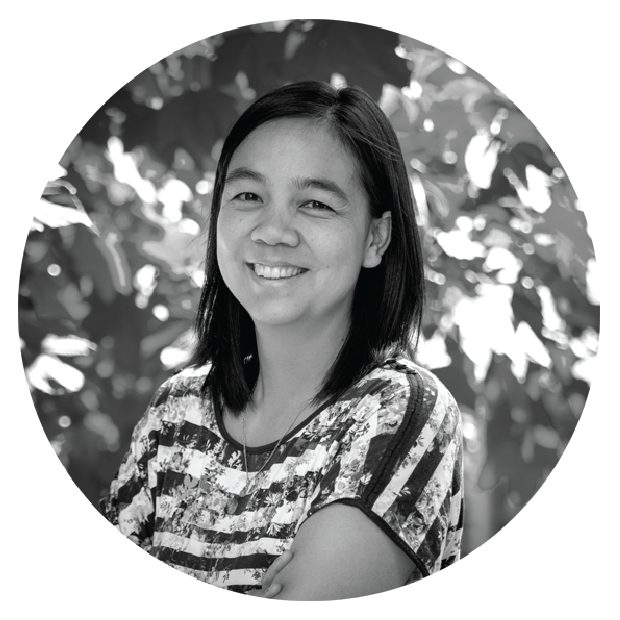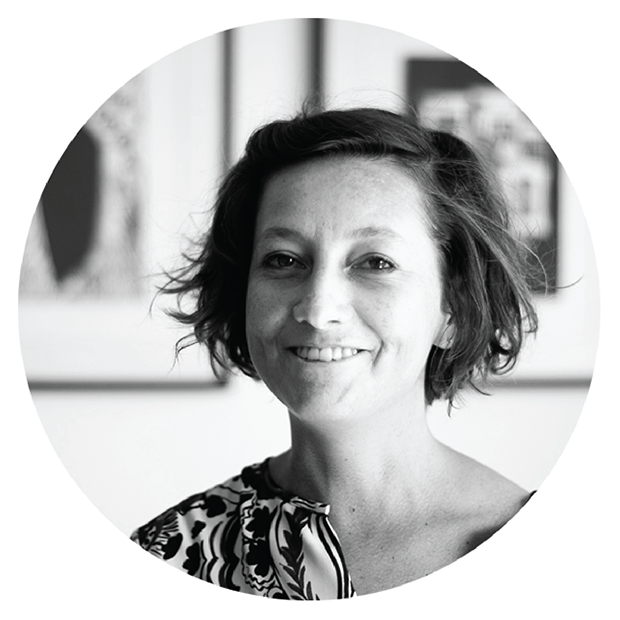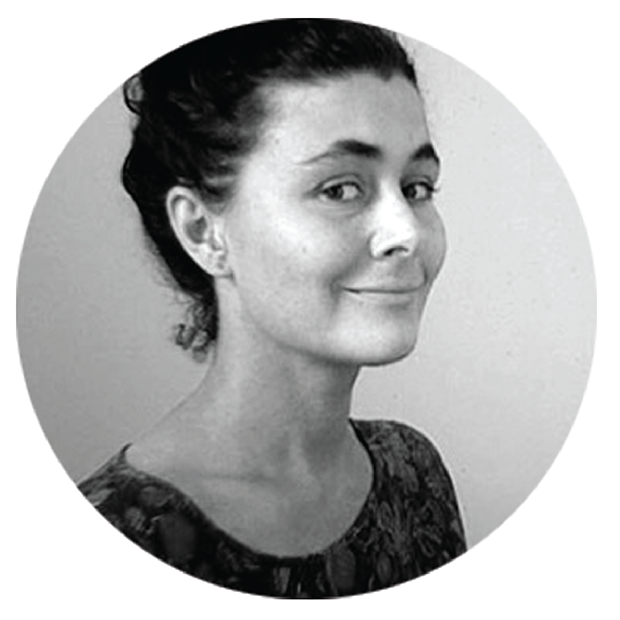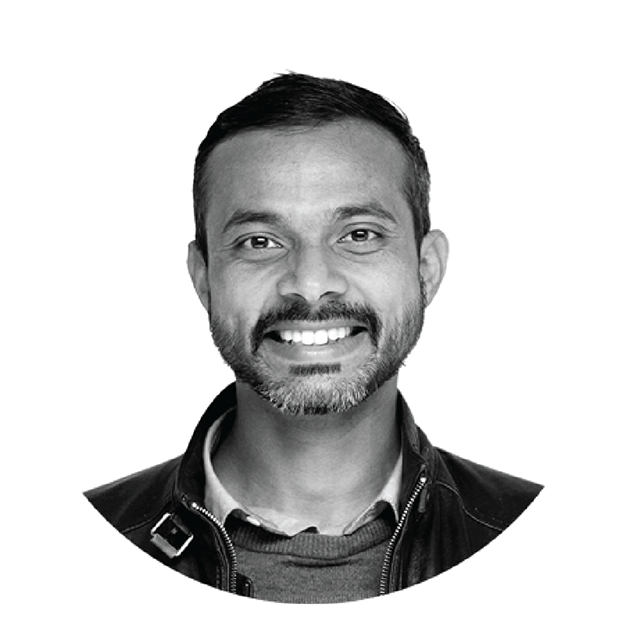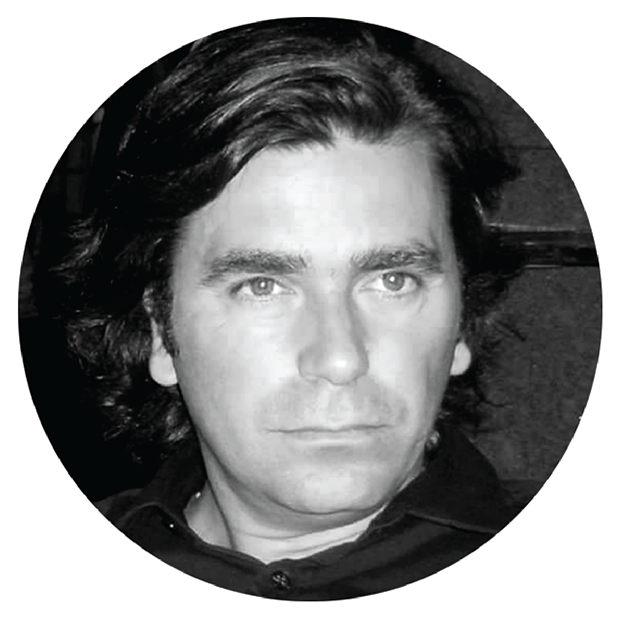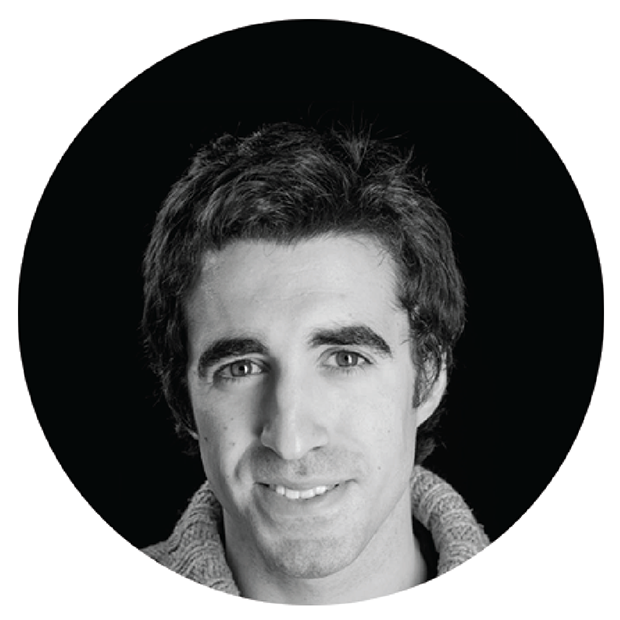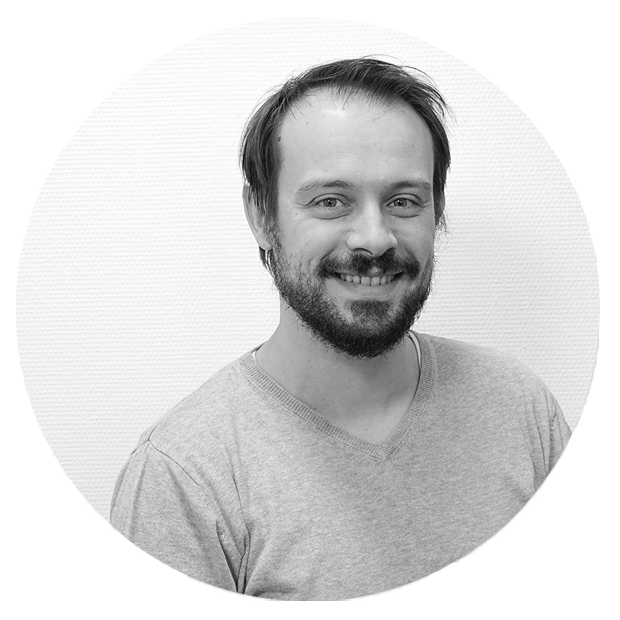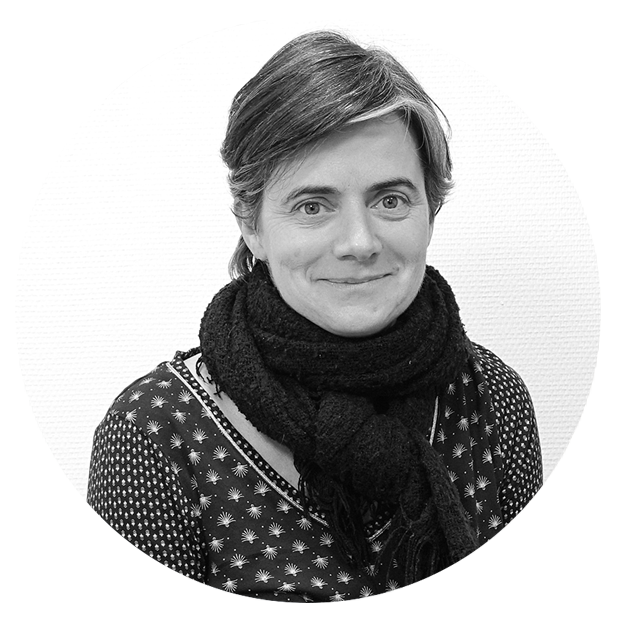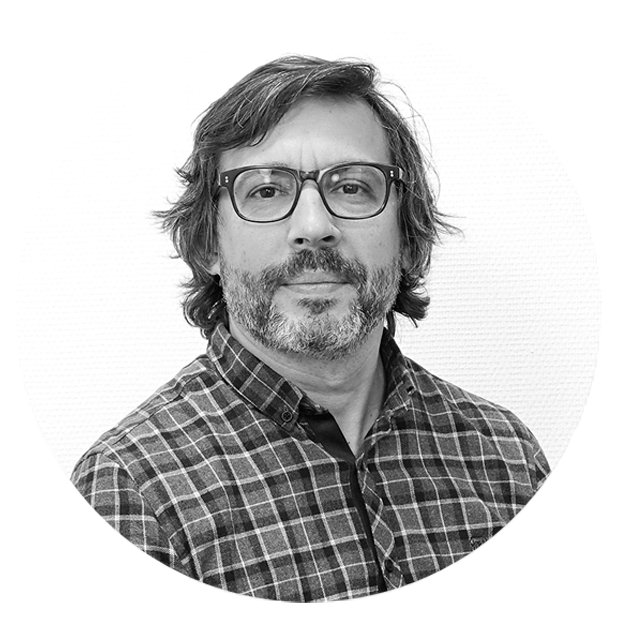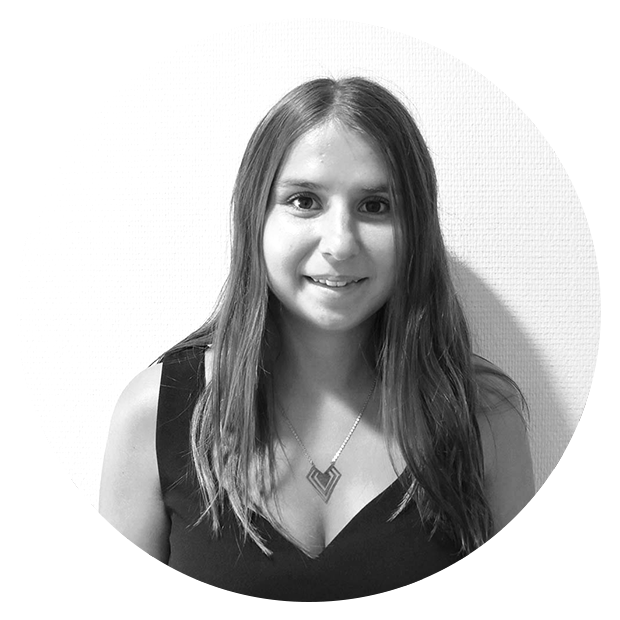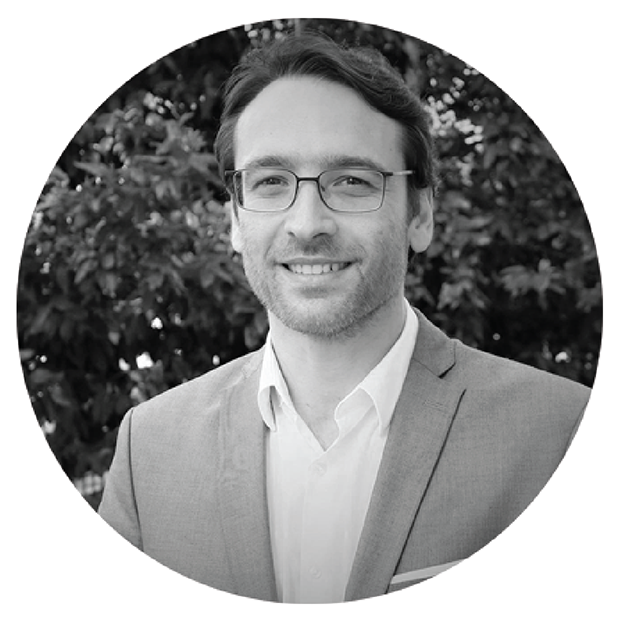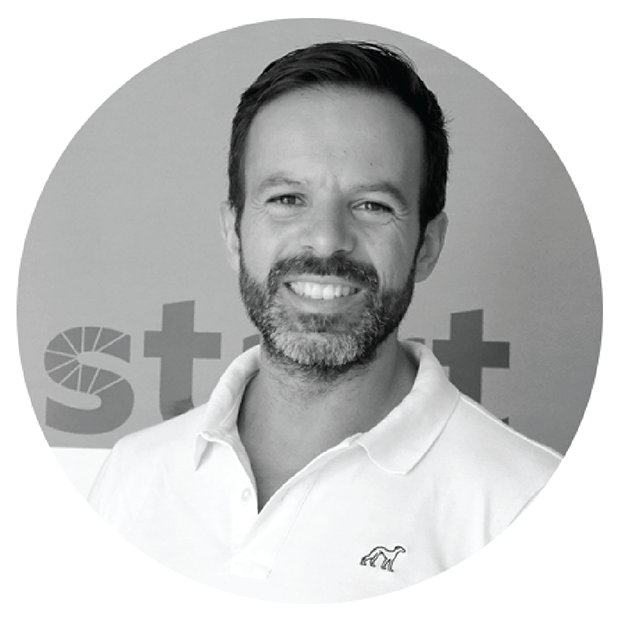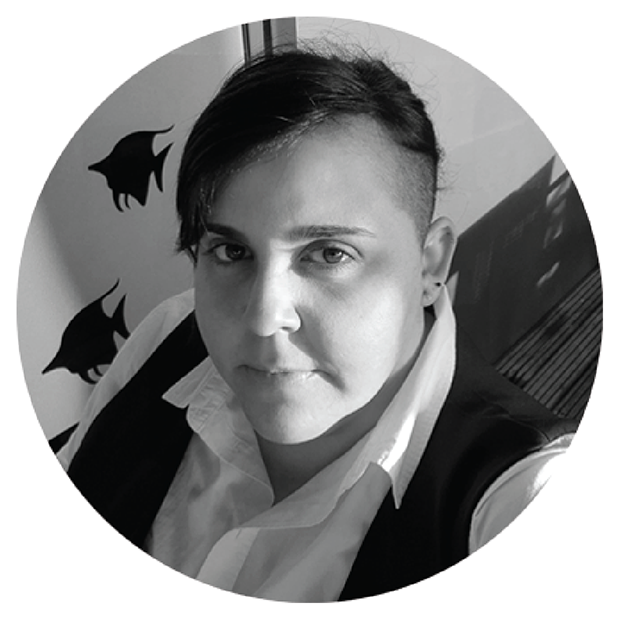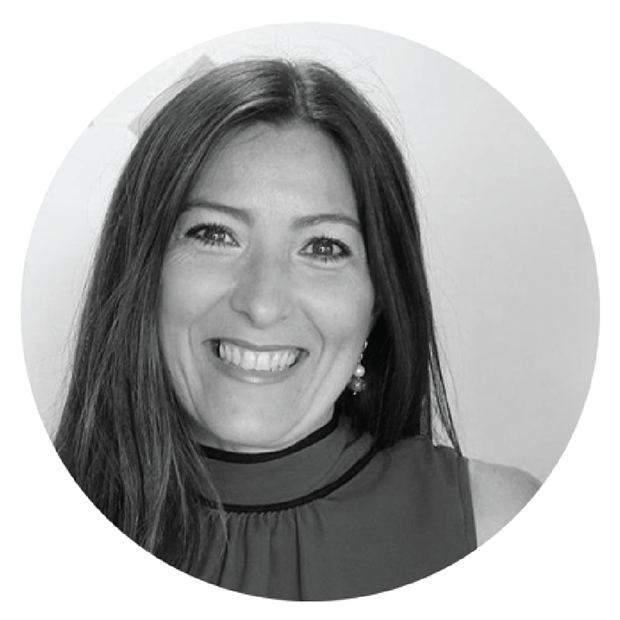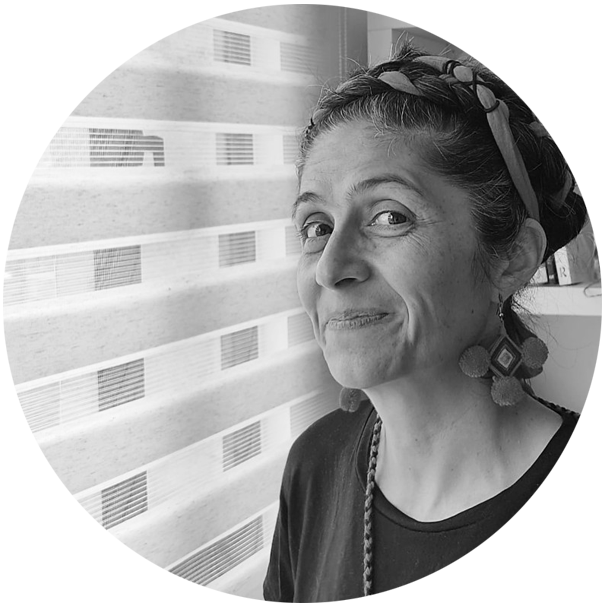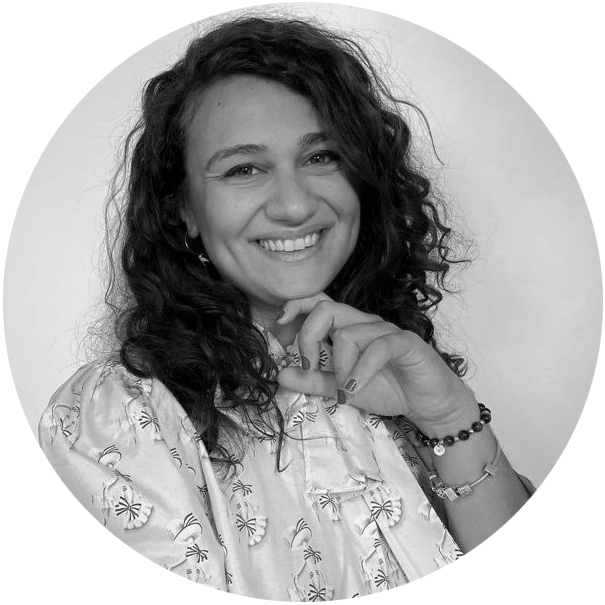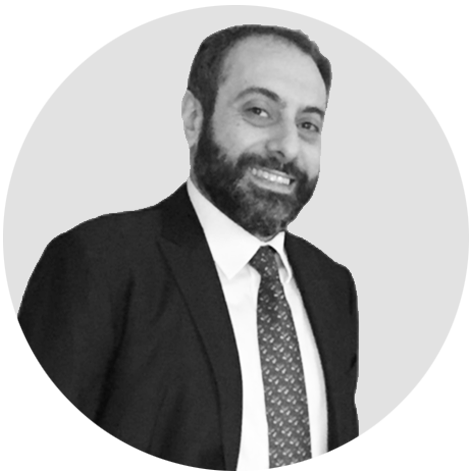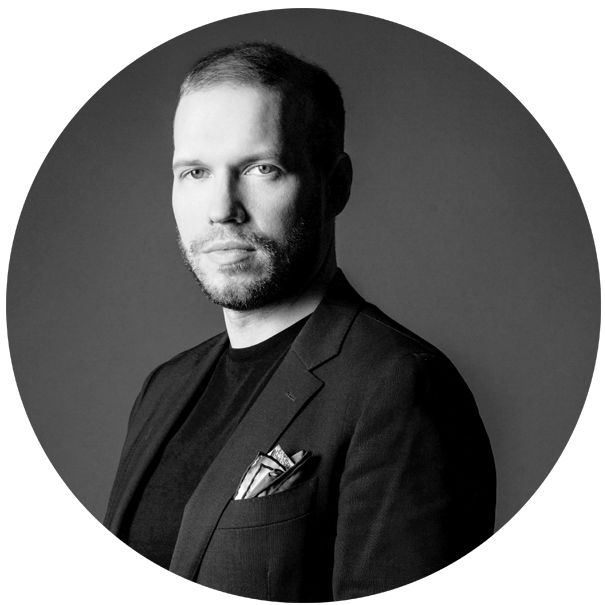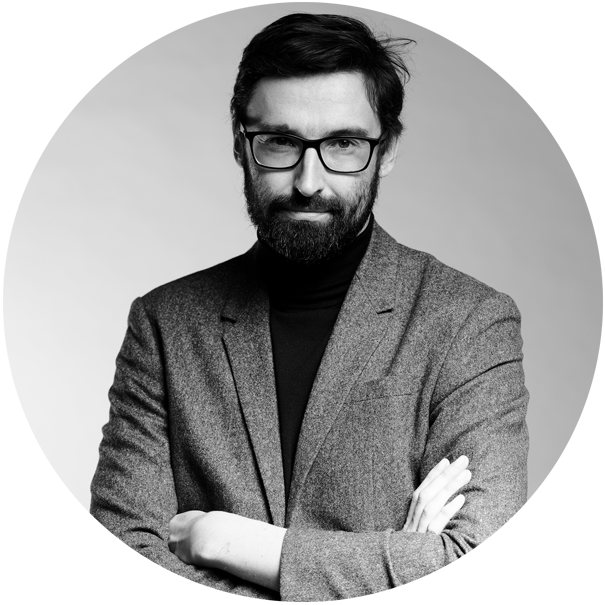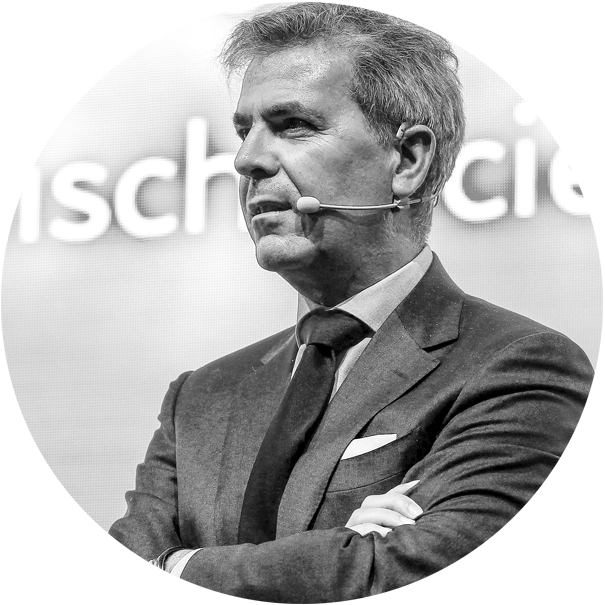Partners

Marita holds a Ph.D. in Industrial Design. She is Associate Professor at the Department and School of Design at Politecnico di Milano, where she is also Scientific Director of the IDEActivity Center. IDEActivity aims to give value to all aspects of creativity, promote innovation through design, and activate and re-enforce all phases of the “creative process” within any given context. Since 2015, IDEActivity is investigating the impact of the digital transition on the factors that enable or inhibit creativity at different stages of the design process, experimenting with new approaches based on design thinking and co-design.
She was the Scientific Coordinator of the BioDesign Laboratory, incorporated in 2017 by IDEActivity. The Lab deals with R&D activities in bio-medical fields through a Human-Centered Design approach, considering the human being a starting point for the projects and using new technologies to provide psycho-physical well-being.
Her current research interests are equally oriented towards developing activities that combine research in design, studies on creativity, and a people-centred approach to creating tools and methods able to enhance the creative design process and biodesign problem-solving research projects in the fields of bio-robotics, rehabilitation devices, wearable devices and pro-active lifestyle systems.
Ph.D. in Design. Her research focuses on investigating the new opportunities for creative empowerment opened by digital technologies, developing methods to empower the human factors of creativity within the design process. Since 2016, she investigates how digital technologies are influencing and augmenting the cognitive, motivational, and social dimensions of the creative design process, identifying new stimuli and technological tools that support designers and non-designers in expressing their creative potential. In her work, she merges a human-centred perspective, design thinking and co-design methodologies to facilitate radical innovation. She took part in EU and national projects, working with relevant companies.
Part of her activity is dedicated as a Design Thinking and Creativity coach at the School of Design and Poli.Design of Politecnico di Milano.
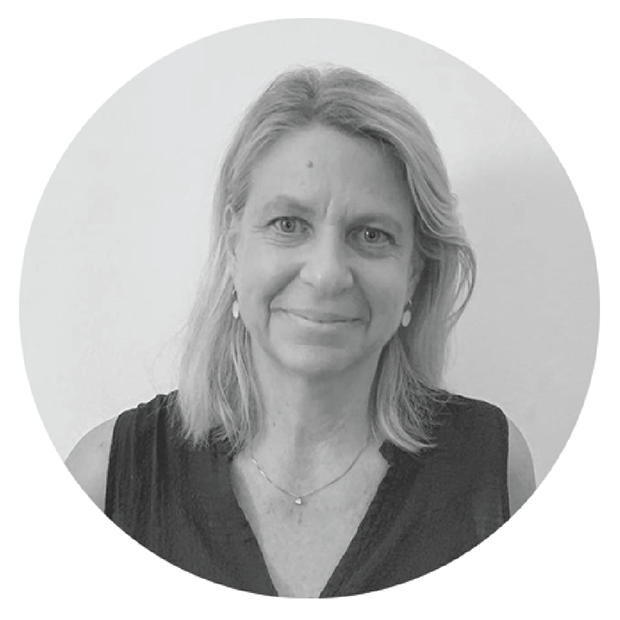
Laura Anselmi
IDEActivity Center
Laura Anselmi, Architect and PhD, is Associate Professor at the Design Depart¬ment of the Politecnico di Milano.
She is the Scientific Director of the Product Usability Lab, research center in the field of Usability and User Experience, and she collaborates with IDEActivity Center. Her principals interests are oriented to promote an approach Humanity-Centered Design to develop innovative products and services that support the psycho-physical well-being.
Daniela Amandolese is member of Materially’s EU Project team, developed her expertise during her former activity as Innovation Research and Library Manager in Material ConneXion Italia.
Adjunct Professor at Politecnico di Milano (course of Industrial Design) member of the Development Team of the Master TemporaryCircular Architecture IUAV of Venice for which she is visiting professor (courses Eco Materials and Trend Research).
She attended the higher education course in Jewellery Design at Poli.design in Milan and then she attended a Master Degree Course in Industrial Design at Polytechnic School (with a thesis focused on co-design tools).
Then she collaborated for a couple of years with the Politecnico di Milano as a researcher in the field of innovative materials and technology transfer, in the same years she co-founded the Visibilio Design studio based in Milan collaborating with companies such as Luxottica, Somfy Group, Vismaravetro.
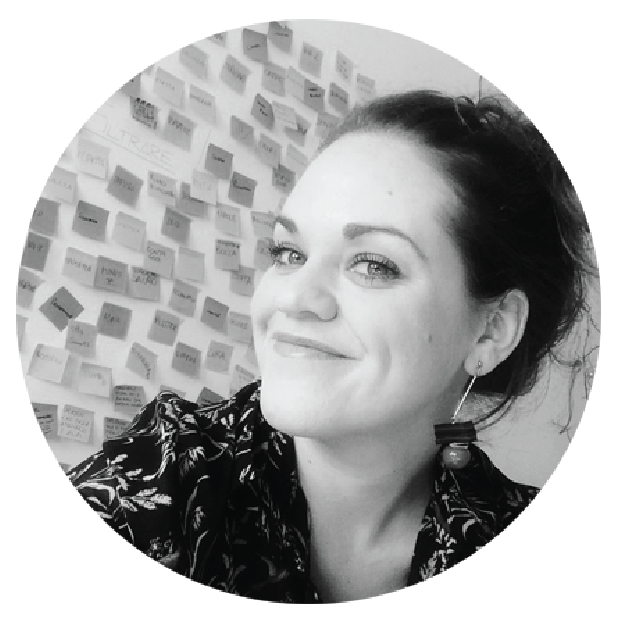
Daniela Amandolese
IDEActivity Center
Francesco is Phd in industrial design and Full Professor of Industrial Design at Politecnico di Milano. He’s Deputy Dean of the Design School and Head of the Course in Product Design (BA+MAs). He’s Coordinator of the European Horizon 2020 Project, called “Crea”, Network of summer academies for the improvement of entrepreneurship in innovative sectors. He is Director of the International Master in Design Strategy and System Innovation. He is also Co-director of both the International Master in Strategic Design and the master in Furniture Design of Politecnico di Milano. Founder and Director of CI.Lab (a Politecnico’s research lab focused in Creative Industries), he is in the board of ADI Index, the most important organization for assessing the best design in Italy. Chairman of POLI.Design Consortium, no profit organization operating in the applied research and specialized education in the design fields. He is author of numerous international publications about strategic design.
PhD candidate with a background in product service system design and management engineering.
He is focusing his research on how design, and in particular strategic and service design, can supports companies in creating innovation. At the same time, he is working in projects that deal with entrepreneurship, supporting start-ups in combining the design and the business binomial.
Actually, he is collaborating with the Department of Design of Politenico di Milano where he is working as designer and researcher involved in European research projects, but also in the School of Design courses.
Mattia Italia was born a long time ago in a galaxy far, far away (in Syracuse in ’94). From there he began his journey to discover design, studying first in Como and then in Milan. Here he explored many different aspects, getting fascinated by issues related to sustainability – both social and environmental.
For this reason, his focus has shifted to this topic, linking it to the world of materials. In particular, together with a company in the packaging sector, he is developing new methods, systems and processes to select sustainable and competitive materials. Other topics that interest him are sustainable footwear, strategic design and CCI.
Politecnico di Milano is a scientific-technological university funded in 1863, which trains engineers, architects and designers. The Department of Design was created in 2013 from the InDACo (Industrial Design, Arts, Communication and Fashion). The 2021 QS World University Rankings placed Politecnico di Milano 5th in the world, third in Europe and first in Italy in the area of Art & Design.
In recent years the Department of Design has come to represent the largest design department in Italy, rivalling centres of excellence at the international level. It conducts research and provides training and consulting services in fields ranging from intangible design to concrete artefacts. The Department of Design is well experienced in joint research projects and brings outstanding competencies in introducing design-enabled innovation into diverse contexts, being a world leader in advancing design knowledge and in exploring and opening new fields of activity, such as the introduction of design methods and tools in the domains of services, social innovation, business strategies and business modelling.
Politecnico di Milano is participating in DC4DM as project leader through the cooperation of three research groups coordinated by Prof. Marita Canina – IDEActivity Center.
IDEActivity Center (Design Dept) is the Center of Excellence in Creativity and Design of Politecnico di Milano. The research core is devoted to developing creativity-driven methods – focused on the synergy between creativity techniques and design tools – that enable collaborative actions aimed at identifying and solving problems through the direct involvement of users. A specific focus is devoted to understanding how the current scenario of digital evolution is influencing the creative design process. Indeed, the center has developed the first theoretical version of the Digital Creativity for Digital Maturity model which aim to empower the human creative skills to guide the strategic application of emerging digital technologies – to create innovative digital solutions- in any field of application, boosting innovation.
CI.Lab (Design Dept) has matured experiences and capabilities in developing and managing creativity processes through the involvement and management of several projects that deal with the development of methodology and tools to promote entrepreneurship, ICT and creativity.
NECSTLab (DEIB Dept) with an expertise in the areas of reconfigurable computing, self-aware and autonomic systems, hardware/software co-design, embedded systems, and high-performance processors and systems will provide mentoring during the implementation of the model.
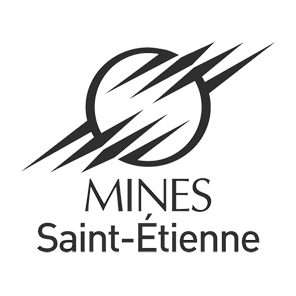
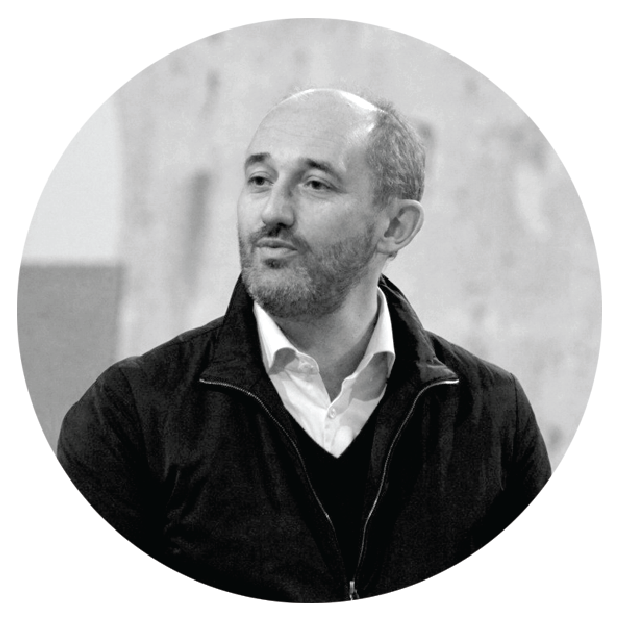
David Delafosse
David is a full professor in materials science and engineering and was appointed Vice President for Research and Innovation of Mines Saint-Etienne in 2015. In 2009, he launched the Industrial Design project of Mines Saint-Etienne. He initiated teaching collaborations with graduate and postgraduate Design degrees at Brunel University, London, Politecnico di Milano, Italy and Auburn University, Alabama, and a joint research program on “Materials for the creative industries” with the department CMIC “Giulio Natta” of Politecnico di Milano, which has been hosting him as visiting professor between 2013 and 2018. He co-created the multidisciplinary “Prospective Design” Master degree program with Université Jean-Monnet and Saint-Etienne School of Arts and Design. He develops research and teaching methods to stimulate the social and human factor awareness of engineering students on the one hand, and to foster the appropriation of technology by arts and design students on the other.
After a Master’s degree in chemical engineering in 2002, Jenny joined the National Institute of Standard and Technology (NIST, Gaithersburg MD) for two years and studied the ageing of polymer based composites. Back to France in 2005, she defended a PhD in materials science at the National Institute of Applied Science (INSA, Lyon) in 2008 on nanocomposite materials. In 2009, she was appointed as assistant professor at Mines Saint-Etienne, and associate professor in 2019. Her research focus lies at the interface between materials science and user-centered product design, covering development of new materials for the creative industries, materials perception and smart materials. She is currently in charge of the multidisciplinary “Prospective Design” Master degree program, co-operated across Mines Saint-Etienne, Jean-Monnet University and Saint-Etienne School of Arts and Design
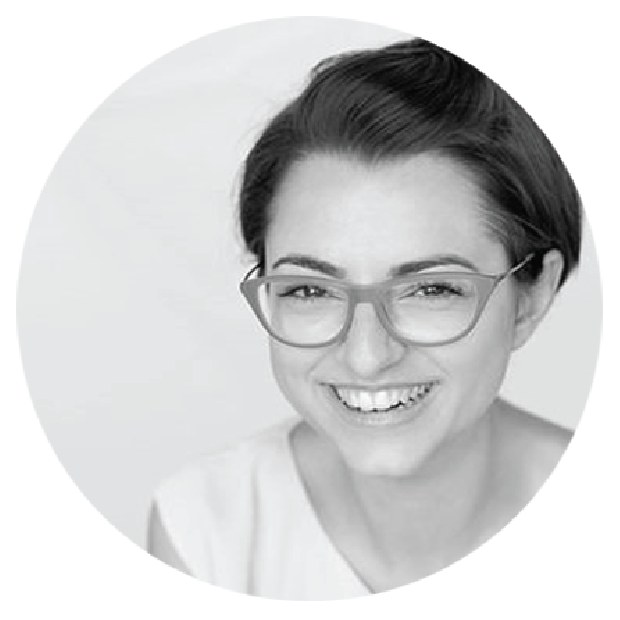
Andra Oprisan
Mines Saint-Etienne
Educated in Romania as a computer scientist and in the UK as a design and innovation strategist, Andra has 14+ experience in the design industry, having worked across a number of design disciplines – from graphic to brand to innovation, and most recently as a digital portfolio strategist. Some of her pas work includes helping rebrand Youtube (2015-16), being part of Sodexo’s global repositioning (2014-16), assisting Wally Olins in writing his last book Brand New (2012-2014), helping set up an innovation lab in Madrid (2017-18), and teaching design innovation with LaunchBox at Mines Saint-Etienne for the past 10 years. Her work footprint spans 15 countries or so. Between 2018 and 2021 she’s been part of a small ninja team tasked with exploring what design can do for an oil & gas mammoth going through an ambitious transformation to a multi-energy company, and managing a portfolio of 50+ design-driven digital projects.
Founded in 1816, Mines Saint-Etienne is the oldest French elite school of engineering outside Paris, part of Institut Mines–Telecom, the #1 group of graduate schools of engineering and management in France. With 2400 students, 25% of which international, 400 staff, 140 faculty, 8M€ of research contracts per year and 5 ERC grants hosted, it is a highly international graduate school of engineering science and management that combines human-size, high staff-to-student and staff-to-faculty ratios, closeness to industry and academic excellence. The Times Higher Education ranks it as the #1 institution in Engineering and Technology in both regions it belongs to : Auvergne Rhone-Alpes and Provence Alpes Côte d’Azur (Top 250 worldwide in 2020). Mines Saint-Etienne’s two campuses are located at the heart of two major French metropolitan areas and economic regions: Saint-Etienne in the Lyon Saint-Etienne metropolitan area and Auvergne Rhone-Alpes Region, and Gardanne in the Aix Marseille metropolitan area and Provence Alpes Cote d’Azur Region.
Mines Saint-Etienne is participating in DC4DM project as HE partner, particularly providing a ten years-experience with international multidisciplinary innovation workshops for highly motivated and selected international students. Co-designed with partner universities from the UK, Italy and USA, the “L*unchBox Workshop” activity has been experienced over the yeays by graduate students in innovation strategy, product and service design and engineering spanning over 40 nationalities.
Mines Saint-Etienne also has a four years-experience in disseminating techniques and methods experimented in this highly focused context to a broader audience of students in general engineering and groups of several hundreds of students (“Dynamo Days” activity at Mines Saint-Etienne and “Disrupt Campus” activities at the IMT network scale).

Valentina Vezzani has got a PhD in Design, and a MSc in Service Design.
She is Assistant Professor in Design at University of Madeira. Her research and teaching interests are in the field of strategic design, service design, sustainable development, social innovation and collaborative processes and tools.
She is co-founder of Paco Design Collaborative and co-founder of Atlantic Wonder research project.
Elisa Bertolotti works with storytelling, moving image and communication design. With a Ph.D and postdoc from Politecnico di Milano, Elisa is currently teaching design at the University of Madeira, Portugal.
She is also co-curator of the Atlantic Wonder research program, focusing on alternative methods for learning outdoors and developing new ways to foster innovation between design and the natural sciences.
Shujoy Chakraborty is an Assistant Professor of Product Design at the University of Madeira (UMa), Department of Art and Design. Shujoy’s pedagogy and research intersects classical design and computational design.
His current work spans academia-industry applied research / product innovation / product experience / virtual reality (VR) / parametric design / design process models and creativity theory.
Shujoy is a faculty member of the ITI-LARSyS (Laboratory of Robotics and Engineering Systems) Research Unit from Técnico Lisboa.
Shujoy holds a Ph.D in Design from the Politecnico di Milano, a Master in Design from Domus Academy Milano, and a Bachelor in Architecture from The M.S. University of Baroda India.
Eduardo Leite, Ph.D. in Management at University of Trás-os-Montes e Alto Douro, Portugal. Professor of Management, Accounting, Entrepreneurship and Innovation at the University of Madeira. Author of several scientific papers in national and international peer-reviewed journals and columnist for the economic journal. Co-inventor of the patent Seaweed extracts, methods and uses thereof. Coordinator of National and European projects, such as “Blue Iodine” Call INNOV-ID, Portugal Ventures, in partnership with ANI National Innovation Agency, PME Investments, and StartUp Portugal.
Luís Ferreira, graduated in Interactive Media Design (University of Madeira) and has a Master in Entertainment Technologies (Carnegie Mellon University). In 2021, he completed his PhD in Digital Media at the Faculty of Science and Technology, Universidade Nova de Lisboa (FCT – UNL), where he developed a platform that makes use of music and reminiscence for cognitive stimulation purposes called Musiquence.
Currently, Prof. Luís is a professor at the University of Madeira teaching interaction design, 2D animation and programing to design and engineering students. Also, Prof. Luis actively collaborates in research projects at the Neuro Rehab Lab. His role consists, above all, in designing and developing serious games while studying their impact on clinical populations (e.g., Neurological and Psychiatric).
University of Madeira (UMa) is a state university established in 1988 on Madeira Island, Portugal. UMa is organised into 4 faculties – Exact Sciences and Engineering, Life Sciences, Social Sciences, Arts and Humanities – and 2 schools – Health Higher School and Technologies and Management Higher School. Despite being located in a peripheral area of Europe, UMa is an international university aiming to achieving excellence through education, research and service to regional, national and international communities. UMa promotes applied scientific and cultural research, enhancing its ability to establish strategic partnerships with companies and international universities. Scientific research regards Arts and Humanities, Education, Life, Earth and Environmental Sciences, Mathematics, Physical and Engineering Sciences and Social Sciences, and has received financial support from FCT/FEDER and the European Community through INTERREG international projects.
In the context of a small island, the local academic community plays the role and duty to prepare young minds and support local enterprises in developing the skills and strategies to respond to the current and future environmental, social and economic challenges. Madeira island needs more collaborative and interdisciplinary platforms and methods to ideate, test, implement and scale up innovations that can contribute to its sustainable development. From tourism to food production and distribution, from manufacturing to construction, from natural resources monitoring to public sector services and education, digital technologies can play a very important role on this small peripheral territory. Where resources are limited, where the equilibrium between natural resources offering and human needs is under constant threat, it is necessary to prepare future designers and entrepreneurs with the right mindset, capacity to collaborate and generate future sustainable and regenerative systems that can benefit to not just individuals and local economy, but especially the environment and the society relating with it. University of Madeira is participating in DC4DM project as HE partner bringing a variety of expertise from the field of design thinking and innovation, IT, entrepreneurship and management, bioeconomy and sustainable development.

Professor Christophe Gravier was the Director of Development and Innovation at Telecom Saint-Etienne.
His research interests lies in Computer Science and especially natural language processing. He has been working with Télécom Saint-Etienne since 2004.
He is now the new Director of Télécom Saint-Etienne.
Anne-Claire Legrand is assistant professor at Telecom Saint Etienne, University Jean Monnet. Her research interests are focused on Image Processing and Computer Science at Hubert Curien Lab. She has working with Telecom Saint Etienne since 2004. She is currently teaching Computer science, Image processing and Machine Vision. Her teaching is based on innovative pedagogical methods, it aims to train future scientific engineers to learn to question themselves, to find solutions, to be curious and creative, to be the driving force behind their own learning and to give themselves the necessary skills to make informed choices in a complex and evolving world. She manages student projects on research and innovation that combine creativity, ideation, team building and scientific work for industrial purposes.
Fabien Labarthe is assistant Professor in information and communication sciences at the Jean Monnet University (UJM) of Saint-Etienne. He is responsible for the Master’s degree « Communication design: innovation and digital mediation » at the UJM/Télecom-Saint-Etienne. His work focuses on public policies on culture and innovation, as well as on the use and learning of digital technology in a popular environment. He is a member of the ELICO EA 4147 laboratory.
Céline is in charge of innovation and entrepreneurship at Télécom Saint-Etienne. She has a Master’s degree in Marketing and Sales. She is the Referent of the Use’In incubator, which belongs to the Jean-Monnet University and is run by Télécom Saint-Etienne, supporting innovative projects in the digital or technological field. She is in charge of the operational aspects of the incubator, in particular the setting up of calls for applications for the selection of start-ups, the support and monitoring of start-ups, communication, the organisation of events and the management of relations with partners. It is also responsible for finding projects in Télécom Saint-Etienne’s areas of expertise, within the framework of the Research and Innovation Projects and the Engineering Projects.
Télécom Saint-Etienne is the engineering school of Université Jean Monnet in Saint-Etienne, and an affiliated school of the Institut Mines Télécom. It is accredited by the French national commission on engineering degrees to confer an engineering degree (diplôme d’ingénieur) in telecommunications. The engineering curriculum requires 3 years of study to obtain master-level diploma. The school offers a first-year core curriculum and then 9 specialized tracks in the second and third year of the engineering curriculum, including computer science, telecommunications, computer networks, electronics, optics, and image processing. The teaching staff is made of 48 permanent teachers as follows: 33 tenured teacher/researcher (23 associate professors and 10 professors), 5 teachers detached from college, and 10 teachers under full-time permanent contract. An administrative and technical staff of 26 persons support the teachers. The pedagogical activities involve 700+ students: 585 engineering master-level student (French “Grandes Ecoles”) and 148 in other curriculum (mainly Master in design and communication and web development). The school is supported by three research laboratories: Hubert Curien (UMR CNRS 5516), Institut Camille Jordan (UMR CNRS 5208), and laboratory ELICO (EA 4147). It participates to the French Institute Carnot Télécoms and Digital Society thanks to the quality of its research partnership with the private sector.
Télécom Saint-Etienne is participating in DC4DM project as HE partner. It leverages its experience in learning labs activities and in SMEs interactions to foster and promote digital creativity. First, Télécom Saint-Etienne learning lab — called IRAM — is a place for interactions and transdisciplinary between Humanities and Social Sciences & Engineering and technology. Its main fields of applications are culture, education, health, IT companies. The learning lab aims at bringing creativity and design thinking processes at the core of the engineering curriculums, and to help professionals and students to better understand stake and issues of the digital age. Second, the school also co-initiated with Centrale Lyon and EMLyon business school an international network of learning lab since 2014. It combines more than a hundred learning labs mostly in France but also in Belgium, Canada and Morocco. Second, Télécom Saint-Etienne experience reflects from its interactions with the private sector, mostly made of SMEs in our region. Those SMEs are structured in a cluster called Digital League (100+ companies) in the digital market area. These interactions also startups from “La Base” — Télécom Saint-Etienne incubator.

Carlos Soares Lopes Graduated in Economics by the Universidade da Madeira (2005) and a Masters Degree in Business Science, specializing in Entrepreneurship and Innovation, by the Instituto Superior de Economia e Gestão – Universidade Técnica de Lisboa (2009). Carlos Soares Lopes works at Startup Madeira since 2005 where he started as Project Manager, currently he is the CEO.
Graduated as Land Surveyor and Geometrician at Professional School for Geographic Sciences in 2005, and certified CrossFit Level 1 Trainer (CF-L1) in 2014. From 2005 to 2007 worked at Santa Cruz City Hall as a Land Surveyor with responsibilities in all public constructions under that Public Institution. Since 2007 André Sotero A. Nóbrega works at Startup Madeira as a Project Assistant providing support in the operationalization of entrepreneurship, technology, Digital Transformation and innovation projects and events. During this time André has developed skills on social media and basic Graphic Design to support all ongoing projects at Startup Madeira.
Diva has a degree in Communication Culture and Organizations from the University of Madeira (2007) and an Executive MBA in International Business Management, from Universidade Autónoma de Lisboa (2014).
Since she finished her degree, she had been working in Project Management. She has more than 12 years of experience developing and managing projects, most of them in the fields of entrepreneurship, innovation, technology, and digital impact. In addition to these, she collaborates in the operationalization and promotion of other regional and international projects.
Liliana Barbosa Pimenta is the Chief Financial Officer.
She has a degree in Business Management and 20 years of experience in financial department, as well as the development of European and Regional projects linked mainly with entrepreneurship and innovation.
She has been working at Startup Madeira since 1999.
Established in 1997 Startup Madeira is the local entity responsible for the development and application of the European Commission’s Business Innovation Centres Program (EC-BIC´s). Startup Madeira’s mission is to serve as an instrument for regional development by supporting entrepreneurs in the implementation of their innovative business project at Região Autónoma da Madeira, from the consolidation of an idea to its practical implementation, providing an environment favourable to entrepreneurship, namely among younger people, and acting as a facilitator and central point of contact for an entrepreneurial ecosystem.
The multidisciplinary team at Startup Madeira provides consultancy, coaching and mentoring through the numerous programs, events and activities. It provides acceleration programs to startups, reunite entrepreneurs, both local and foreign, and it helps through a physical incubator, virtual office and co-work space.
Startup Madeira is a full member of EBN which allows it to provide additional support in the development of innovative projects, such as: exportation to foreign markets, internationalization/transnational cooperation, exchange of experiences, transfer of know-how and technology, as well as contacts with other enterprises supported by the innovation centres. It also contributes to an efficient and prompt connection with other programmes and entities linked to the European Union.
Startup Madeira is participating in DC4DM project as tech-driven SME, in particular by providing the following experience and types of expertise.
– internationalization/transnational co-operation, exchange of experiences, transfer of know-how and technology, as well as contacts with other enterprises supported by the centres. It also contributes to an efficient and prompt connection with other programmes and entities linked to the EU.
– provide support, helping to create conditions that will favour the appearance of micro/small businesses, by bringing to life entrepreneurship, modernization and business innovation. 40 companies monitored monthly by Startup Madeira and about 280 directly supported companies.
– It has participated in several transnational projects in programmes; It has previous experience in running mobility exchange projects: has participated in 4 calls of Eramus for Young Entrepreneurs, It has several years of experience in fostering an entrepreneurship education program in schools; It also streamlines support programs for entrepreneurs and local projects.
